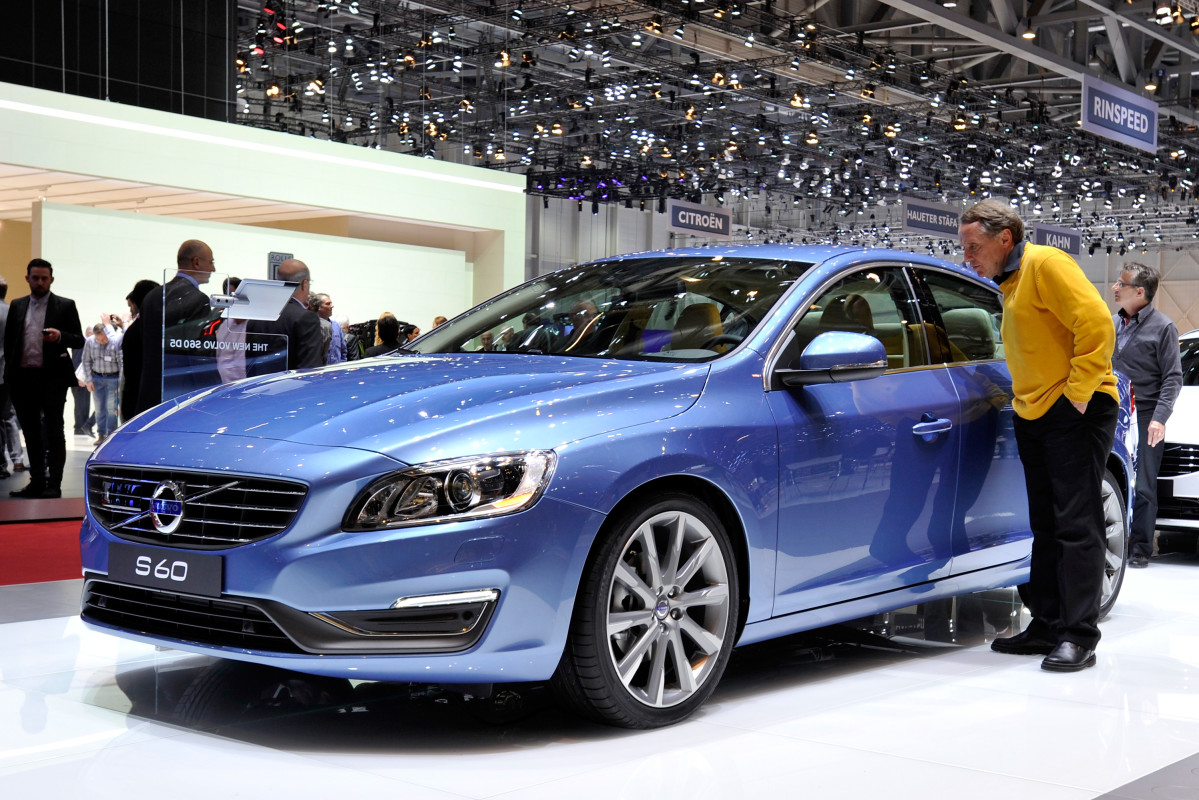
And now the end is near...
On January 1, 2000, the people of Gisborne, New Zealand, became the first people on earth to see a new millennium.
Related: Analysts reset Tesla stock price target ahead of Elon Musk's 'Master Plan 4'
There was a lot of optimistic talk back then about an era of peace and prosperity.
“Today we celebrate more than the changing of the calendar,” then-U.S. President Bill Clinton said. “We celebrate the opportunity we have to make this a true changing of the times, a gateway to greater peace and freedom, for prosperity and harmony.”
This was the year IBM (IBM) sold the first flash drive, camera phones became commercially available, and Bluetooth started being incorporated into mobile phones.
And, by the end of the summer, Volvo had launched the S60, "a sporty, compact executive saloon, with definite influences from coupé styling."

Volvo's S60 was the launch vehicle for its South Carolina plant
The sedan was based on the P2 unibody automobile platform and replaced the S70, which was introduced in Europe in 1996.
"The S60 was a strongly driver-centered car, lending itself to an active, sporty driving style, though without compromising its underlying safety and reassuring drivability," Volvo said on its website.
Related: Analyst predicts Tesla's Elon Musk may create Apple rival
Times move on, and so is the S60 sedan, which is leaving U.S. production this month.
“After five years, Volvo Cars is ending production of the S60 sedan in Ridgeville, South Carolina at the end of June 2024 for the U.S. and some other markets to focus on the all-new EX90,” Volvo Cars USA national media relations manager Russell Datz told Road & Track.
The car was the launch vehicle for Volvo's South Carolina plant in September 2018, making it Volvo's first car built in the United States.
The third-generation S60, introduced in 2018 as a 2019 model year vehicle, sold only 56,631 units in the United States between 2019 and 2023. This generation was noted for its plug-in hybrid variant.
"That's too bad. I love the small/medium-sized sport luxury sedan segment... the options just keep disappearing," one person said on Reddit.
Another Reddit commenter said, "It's disappointing to hear this, but honestly, it's not at all surprising. "The S60 just wasn't competitive, and there was little reason to buy one."
Volvo focuses on electric future
"The interior feels cheap compared to the German alternatives, the ride quality is unnecessarily brittle, and yet the car goes all soft in the corners (just genuinely bad suspension tuning), interior NVH is average at best, and the car lacks basic features like ventilated front seats."
By ending production of the S60 in the U.S., Volvo can concentrate on its new EX90 SUV. SUV's have been in higher demand than sedans for years, a point unlikely lost on Volvo.
The Volvo EX90 SUV is the company's first full-size electric vehicle. It has nearly 500 horsepower and an estimated range of 300 miles.
More Automotive:
- Cybertrucks can't touch this posh Bentley's off-road skills
- Why fast charging is critical to a seamless EV future
- Auto parts giant reinvents steering wheel for next-gen drivers
The true seven-seater "represents the start of a new era for our company in which we set a decisive course for a fully electric future," Volvo said in 2022.
The EX90 will be the first to offer what the company called a "battery passport," which seeks to address concerns brought up by regulators.
According to the rules that the European Union has set for 2027, battery passports will be required to show critical information that is of interest to regulators.
The mandate requires that a vehicle's passport shows a battery's composition, where the raw materials to make the battery came from, the carbon footprint of the vehicle, and the amount of recycled materials used in the vehicle.
The company said it would reveal one fully electric car each year as part of its plan to have only electric vehicles by 2030 and be climate-neutral by 2040.
Earlier this year, the Swedish automaker said it would cease funding EV luxury brand Polestar (PSNY) and transfer responsibility for the marque to its largest shareholder, Chinese automaker Geely (GELYF) .
Volvo's 48% stake in Polestar will be transferred to its parent company, Geely. Under its umbrella, Geely will run the EV-centered luxury brand as an independent brand.
Related: Veteran fund manager picks favorite stocks for 2024







